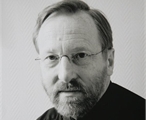2013. DVD (Region 2 PAL). Network. Running time: 107 minutes (+ 40 minutes extras). RRP: £6.99. Available from retail outlets. Official website: http://networkonair.com/shop/1803-body-the.html
 About the reviewer: Doctor Andrew Macaulay has been a Psychiatrist for over thirty years and also set up Mental Health TV (www.mentalhealthtv.co.uk), a resource producing educational programmes for students, junior doctors, health workers and the general public. He previously wrote about the resource for Viewfinder 90.
About the reviewer: Doctor Andrew Macaulay has been a Psychiatrist for over thirty years and also set up Mental Health TV (www.mentalhealthtv.co.uk), a resource producing educational programmes for students, junior doctors, health workers and the general public. He previously wrote about the resource for Viewfinder 90.
Before you can understand this film, you would need to understand a little about the 1960s, Flower Power and the technological advances of the decade. Imagine the optimism you might have felt if you could see a new social order taking place. At home, you would listen to the BBC’s Light Programme or, if you were subversive, Radio Luxembourg when the atmospheric conditions permitted. Technological advances included the promise of travelling at twice the speed of sound and the dramatic significance of a moon landing. Computers held a promise of changing our lives in every sphere. In medicine one of the advances included medical imaging which, for the first time, allowed easy access to the internal workings of the body. These images were remarkable from a technological, artistic and perhaps a philosophical perspective. So if you were at the cutting edge of film making, you would produce a film such as The Body, a hybrid of documentary, social commentary and startling imagery.
As a recurring theme the film has a group in various states of undress, talking together about their bodies and lives. This provides a cue to develop sequences that, for example, show some internal workings of the body using the imagery acquired using endoscopes. There is a fair amount shown on the development in the first nine months of life.
... the observations many of the individuals made about their lives were quite affecting and touching
For me, the observations many of the individuals made about their lives were quite affecting and touching, this included a girl in her 20s talking about her blindness and in another sequence an individual talking about her life, recognising that she was close to death. Other imagery includes a life time consumption of food, a psychiatric ward and in places the film returns to sequences from a car production line. I felt that there were two films here that had been randomly mixed, in a way that was rather uneasy and at times laboured. The social commentary and earnest undertones about caring for the planet and making life fit for children was, I think, intended to link on from the earlier sequences about birth and the way individuals conduct their lives in general.
The audio warrants comment; the narration is split between three voices (actors Vanessa Redgrave and Frank Finlay narrate while poet and playwright Adrian Mitchell also provides a commentary) and I found this worked rather well, as does the sound track which I thought a particularly strong part of the production. Some of you may well have heard of a popular music combo called Pink Floyd, who were involved with the soundtrack and also, in my opinion, some very successful use was made of human body sounds being used experimentally to form what I believe can be called 'bio music.' Students on any film course would learn a lot from the innovative audio track.
The producers have recognised that there is an audience who are particularly interested in the music and have provided a DVD extra called Music Suite, which brings all the music together.
The final sequence concerns a home birth and is really quite delightful. For me, the star of this sequence was the midwife; the mother was pretty relaxed about the whole affair and seemed to have quite a matter of fact approach to having a baby. So although the film is somewhat avant-garde in structure, there is plenty for anybody interested in the social developments of this period.
I am sure if you watched The Body for the first time at the cinema, you will enjoy re-acquainting yourself with it, so the question is whether those of you who weren’t around in the 60s would enjoy the film and find it educational. I think you would.
Dr A J Macaulay MD MSc MRCPsych Consultant Psychiatrist at Mental Health TV